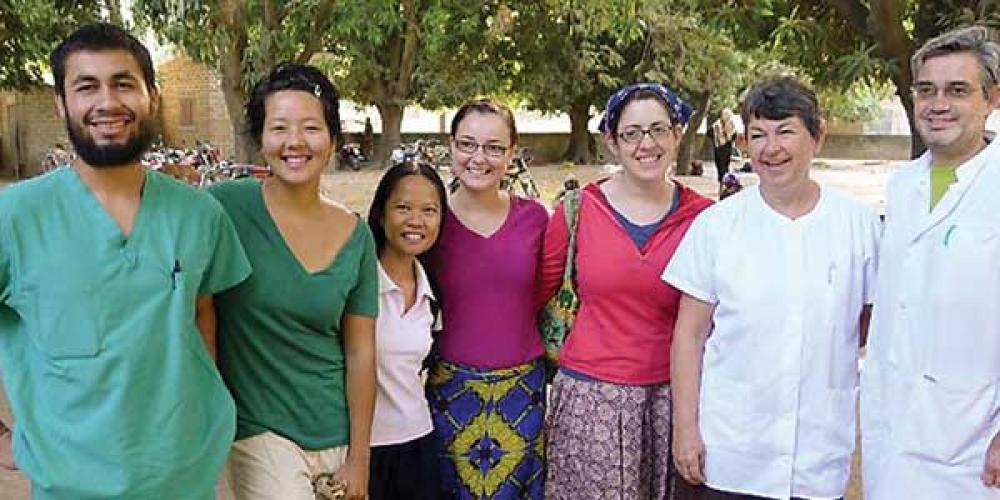What Does it Take?
Being willing and adjusting – are the two most desirable qualities in a volunteer. Those who develop these qualities make wonderful, successful volunteers.
I have just returned from a multi-week trip to East and West Africa. What volunteers accomplish is really amazing! Just saying “thanks” is truly inadequate when expressing appreciation for the service they provide. What a huge difference volunteers can make!
The first part of my trip was to participate in a school complex building project, headed by Maranatha, at Bugema University in Uganda. I joined a group of about 25 volunteers from all over the United States who came to build modified, one-day school buildings, which will be used as dormitories and bathrooms. A previous group had already constructed a number of classrooms and offices (approximately 15) and local workers had been trained to lay all the cement floors for our buildings. In five days we were able to build ten dorm buildings and three bathrooms, which will enable the university to house five hundred ladies who are presently forced to find housing in the rural community. Volunteers were able to do what the university could not.
The Maranatha volunteers ranged in age from 19-72. One couple was on their honeymoon, while others were retired. Some had never left the United States, while others were very experienced at these types of projects. All were willing to adjust to do whatever was needed, and changes in assignments happened frequently.
Every morning we met and discussed the day’s needs, and without saying much, the leader got volunteers to fill every need. These two qualities – being willing and adjusting – are the two most desirable qualities in a volunteer. Those who develop these qualities make wonderful, successful volunteers. I am often asked what it takes to serve as a volunteer and this is my typical answer – be willing and flexible.
Another way of stating this is that a volunteer needs to be ready to serve in any capacity – to be adaptable and flexible. Going in with an open mind and being willing to see and learn how others do things the local way before giving input is hard for most people to do, yet it is vital for success. Those from the West are very prone to making judgments and spouting solutions or “should-do” statements without giving consideration to others first. This can be accentuated when dealing with other cultures! In most cases, the way the local people do things works for them in the long run. It is the way they can do it within their culture. Volunteers go to help them. Arriving with an attitude like a bulldozer blade, backed by full throttle horsepower and ready to shove their way aside is the road to failure. Successful volunteers look and learn from those around them before starting to make small changes. These changes need to enable those who remain to carry on after the volunteer leaves.
The last part of my trip was to visit volunteer sights in Cameroon and Chad. In Bere, Chad, I was delighted to meet the 20 or so volunteers and full time missionaries serving at the hospital and Adventist Frontier Missions (three and a half miles away). Adapting to life in that remote part of Chad is necessary for survival and these volunteers had adjusted well – dusty, sandaled feet and all.
In 1 Corinthians 9:20-23, Paul talks about becoming like those whom he served. This was not a compromise to his Christianity and beliefs, but rather an adaptation to the cultural setting into which he moved. He knew that reaching others would be enhanced by identifying with them, becoming a part of them. Jesus left heaven and became a man in order to better serve us. Likewise, we need to be sensitive to the ways and needs of others as we serve them. Studying about those to whom we minister is a good exercise in preparation for effective service. The love of Jesus in our hearts can, through our service, fit into all the world. Are you willing?





